Can You Put Essential Oils in Aromatherapy
Curious about the world of aromatherapy and essential oils?
Explore the basics of aromatherapy, including what essential oils are and the different types available. Can you put any aromatherapy oils in a diffuser?
Discover the various methods of using essential oils in aromatherapy, as well as the potential benefits, such as relaxation, improved sleep, and pain relief.
Delve into the risks and side effects of using essential oils, as well as how to use them safely.
Learn more about popular essential oils and how they can enhance your well-being.
Key Takeaways:
What Is Aromatherapy?
Aromatherapy is a holistic healing treatment that uses natural plant extracts, known as essential oils, to promote physical, emotional, and mental well-being. It involves inhaling or topically applying these aromatic substances to enhance health and relaxation.
The principles of burning aromatherapy oils lie in the belief that these essential oils, derived from various parts of plants like flowers, leaves, roots, and bark, possess therapeutic properties that can positively impact the body and mind. The benefits of aromatherapy range from reducing stress, anxiety, and headaches to improving sleep quality and boosting mood.
Applications of aromatherapy are diverse, from using a few drops of essential oils in a diffuser for a calming atmosphere at home to blending them with carrier oils for massage therapy to alleviate muscular tension.
What Are Essential Oils?
Essential oils are concentrated, volatile compounds extracted from plants that capture their unique scents and properties. These oils are commonly used in aromatherapy for their therapeutic and medicinal benefits.
Aromatherapy harnesses the power of essential oils to promote relaxation, uplift mood, and even alleviate certain physical ailments. The diverse range of essential oils, each with its distinctive fragrance and potential health benefits, offers a natural way to support overall well-being and address various health concerns. These oils are sourced from different parts of plants, including flowers, leaves, bark, roots, and seeds, through methods like steam distillation or cold pressing.
What Are The Different Types Of Essential Oils?
There are various types of essential oils used in aromatherapy, each with its unique benefits. Common examples include lavender, tea tree, peppermint, orange, and lemon oils.
Lavender oil is well-known for its calming and relaxing properties, making it a popular choice for stress relief and improving sleep quality.
Tea tree oil is valued for its powerful antibacterial and antifungal properties, ideal for treating skin conditions like acne.
Peppermint oil is often used to alleviate headaches and enhance mental alertness.
Orange oil is praised for its uplifting and mood-boosting effects, while lemon oil is commonly used as a natural cleaner due to its refreshing scent and antibacterial qualities.
How Are Essential Oils Used In Aromatherapy?
Essential oils are used in aromatherapy through various methods like inhalation, topical application, aromatic baths, and compresses to harness their therapeutic properties and promote overall well-being.
When inhaled, aromatherapy oils in candles can stimulate the olfactory system, triggering a range of responses in the brain that can influence emotions, memory, and mental clarity.
Topical application involves diluting essential oils with carrier oils before gently massaging onto the skin, allowing for absorption and benefiting both the skin and underlying tissues. Can you mix essential oils in aromatherapy?
Aromatic baths infuse the bathwater with are essential oils aromatherapy, creating a relaxing and rejuvenating experience that can soothe both the mind and body.
Compresses involve using a cloth soaked in diluted essential oils, which are applied to specific areas of the body to target localized concerns and support healing.
Inhalation
Inhalation is a common method of using essential oils in aromatherapy, where oils are diffused into the air using a diffuser to support respiratory health and promote relaxation. Popular inhalation oils include lavender, tea tree, peppermint, orange, and lemon.
When essential oils are inhaled, they can directly impact the respiratory system, helping to clear congestion, relieve coughs, and soothe inflamed airways. The aromatic molecules released through inhalation also stimulate the olfactory system, triggering positive responses in the brain that can reduce stress and anxiety.
Using a diffuser for inhalation disperses these oils effectively, allowing for a consistent and prolonged exposure that maximizes their therapeutic benefits. The calming scents of lavender and chamomile, as well as the revitalizing aroma of eucalyptus, are particularly renowned for their respiratory benefits and stress-relieving properties.
Topical Application
Topical application involves diluting essential oils with a carrier oil and applying them to the skin through massage or direct application. Oils like lavender, tea tree, peppermint, orange, and lemon are commonly used for this method.
When selecting essential oils for topical application, it is important to consider the unique benefits each oil offers. For instance, lavender is known for its calming properties, making it ideal for relaxation and stress relief. Tea tree oil is popular for its antibacterial and antifungal properties, making it beneficial for treating acne and skin infections. Can you mix aromatherapy oils?
Proper dilution is key in topical application to avoid skin irritations. Typically, a 2-3% dilution of essential oil in a carrier oil is considered safe for most adults. Examples of carrier oils include jojoba, coconut, almond, and olive oil.
Aromatic Baths
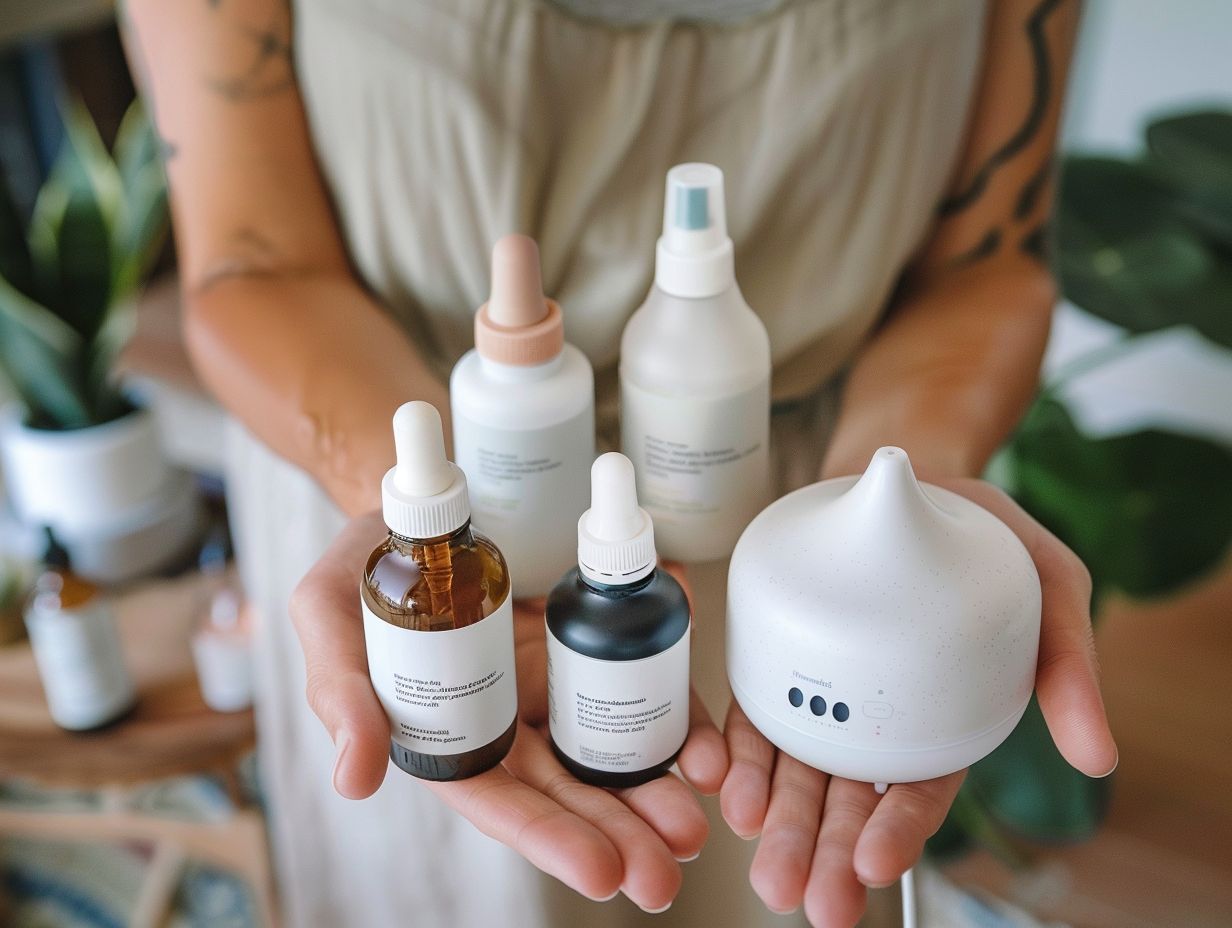
These essential oils not only infuse the bathwater with delightful scents but also carry numerous therapeutic benefits. Lavender, for instance, is widely known for its calming properties, promoting relaxation and better sleep. Tea tree oil is valued for its antibacterial and antifungal properties, while peppermint offers a refreshing and invigorating sensation.
Adding these oils to your bath can help alleviate stress and anxiety, making it an excellent way to unwind after a long day. The warm water combined with the aromatic oils creates a tranquil atmosphere, allowing you to escape from the hustle and bustle of daily life.
Compresses
Compresses involve applying essential oils diluted in warm water or a carrier oil to a specific area of the body to alleviate inflammation and promote healing. Oils like lavender, tea tree, peppermint, orange, and lemon are often used in compresses.
When crafting a compress for reducing inflammation, it is vital to select the right essential oils with anti-inflammatory properties. For instance, lavender oil’s calming effects can help soothe the affected area, while the invigorating scent of peppermint oil can provide relief. To create an effective compress, blend a few drops of chosen oil with warm water or carrier oil and gently apply it to the targeted region using a soft cloth. Allow the compress to sit for 15-20 minutes to allow the oils to penetrate the skin for maximum benefits.
What Are The Benefits Of Aromatherapy With Essential Oils?
Aromatherapy with essential oils offers numerous benefits, including relaxation, stress relief, improved sleep quality, pain relief, enhanced mood, and better mental clarity.
Moreover,
- Aromatherapy can also boost immunity, alleviate headaches, and improve digestion.
- Different essential oils like lavender, peppermint, and eucalyptus have specific properties that cater to various needs.
- For instance, lavender oil is renowned for its calming effect and can help in reducing anxiety levels, while peppermint oil is excellent for boosting energy and mental focus.
- Some essential oils, such as lemon and tea tree, are known for their antiseptic and antibacterial properties, making them beneficial for skin health.
The versatility of essential oils and their ability to address a wide range of physical and emotional issues make aromatherapy a valuable holistic practice.
Relaxation and Stress Relief
Aromatherapy is widely known for its ability to induce relaxation and alleviate stress, with oils like lavender playing a key role in calming the mind and reducing anxiety.
Another popular essential oil known for its calming effects is chamomile. Chamomile oil has been used for centuries to promote relaxation, soothe nerves, and decrease feelings of tension and worry. When diffused or applied topically, chamomile can help create a sense of peace and tranquility.
Plus lavender and chamomile, frankincense is also highly regarded for its stress-relieving properties. This aromatic resin has a grounding and centering effect, making it a valuable tool for reducing anxiety and promoting emotional well-being.
Improved Sleep
Essential oils used in aromatherapy can aid in improving sleep quality and combating insomnia, with lavender oil being a popular choice for its soothing and sedative properties.
Aside from lavender, chamomile is another well-known essential oil that helps induce relaxation before bedtime. Additionally, bergamot oil has a citrusy aroma which can reduce stress and anxiety, promoting a more peaceful sleep environment.
Inhaling these essential oils can stimulate the limbic system, the part of the brain that controls emotions and memories, triggering feelings of calmness and soothing the mind for a restful night’s sleep.
Pain Relief
Aromatherapy with essential oils is effective in providing pain relief, especially oils like peppermint known for their analgesic properties and ability to reduce inflammation.
Peppermint oil can be applied topically after dilution with a carrier oil to soothe sore muscles and relieve tension headaches.
Eucalyptus oil is another popular choice with its cooling sensation that can help alleviate sinus pressure and migraines.
Lavender oil is widely recognized for its calming effects, making it ideal for managing stress-related pain.
For those seeking relief from joint pain, ginger oil has been found to possess anti-inflammatory properties that can aid in reducing discomfort and improving mobility.
Each of these essential oils offers a natural alternative to traditional pain management methods, providing a holistic approach to alleviating various types of pain.
Improved Mood and Mental Clarity
Aromatherapy using essential oils can improve mood and enhance mental clarity, with oils like orange and lemon known for their uplifting and invigorating effects on emotions and cognitive function.
Furthermore,
- Lavender oil is widely recognized for its calming properties, reducing stress and promoting relaxation.
- On the other hand, peppermint oil is often used to boost energy levels and improve focus.
Each essential oil has unique aromatic compounds that can influence the brain’s limbic system, which plays a key role in regulating emotions and memory. By inhaling or applying these oils topically, individuals can experience immediate changes in their mood and cognitive performance. Incorporating aromatherapy into your daily routine can positively impact your overall well-being.
Are There Any Risks or Side Effects of Using Essential Oils in Aromatherapy?
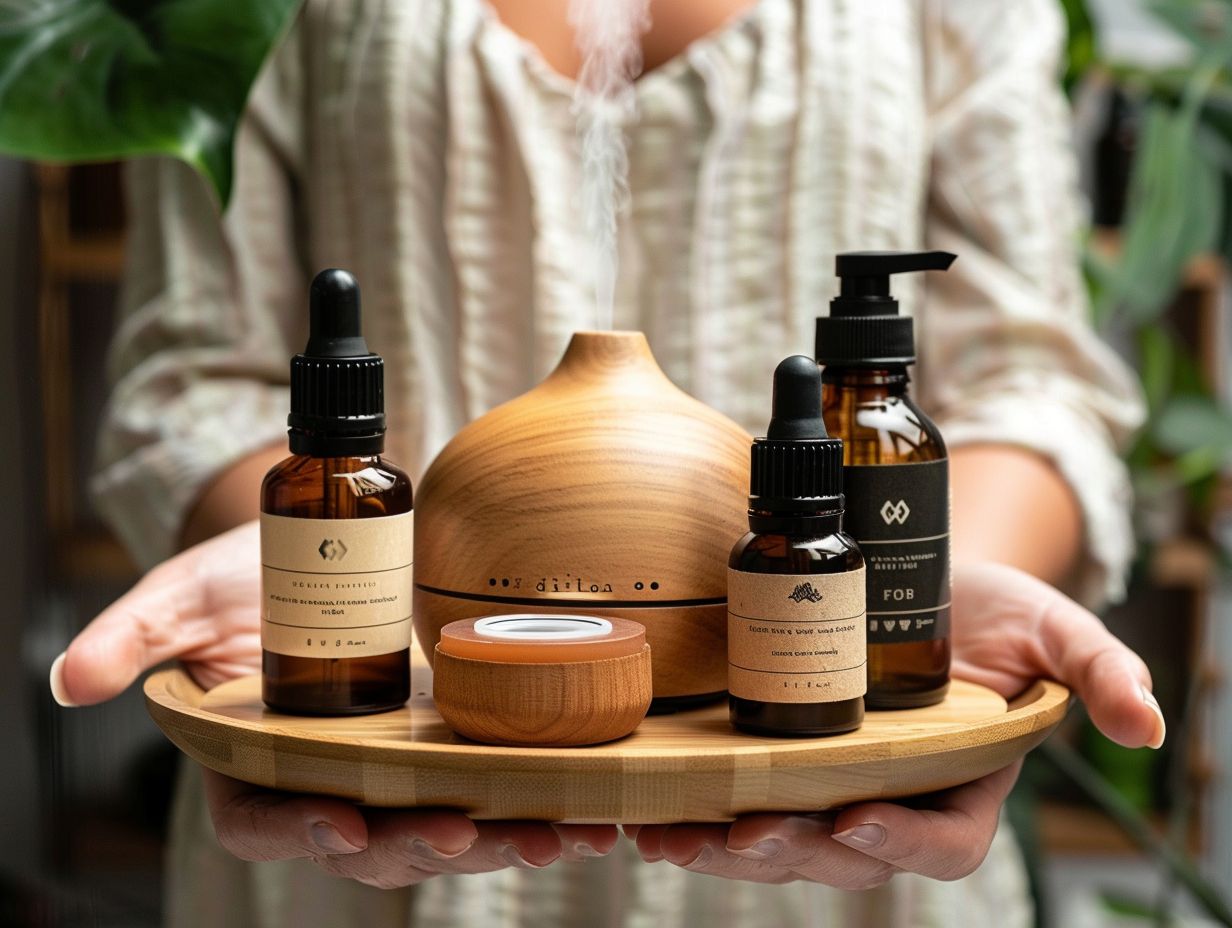
-
It is crucial to dilute essential oils properly before applying them to the skin to minimize the risk of irritation.
-
Some oils, like citrus oils, can make the skin photosensitive, increasing the chances of sunburn.
-
Individuals with sensitive skin or respiratory issues should be cautious when using essential oils in aromatherapy.
-
Pregnant women, children, and pets may have heightened sensitivity to certain oils and should consult a healthcare professional before using them.
Skin Irritation
Skin irritation is a common side effect of using essential oils, making it crucial to perform a patch test before applying oils directly to the skin.
Certain oils like lavender, tea tree, peppermint, orange, and lemon can trigger allergic reactions in some individuals. This is because essential oils are highly concentrated extracts from plants and may contain potent compounds that can be irritating to the skin. Therefore, it is essential to dilute them properly before use.
Patch testing involves applying a small amount of diluted oil to a small area of skin and observing for any adverse reactions over 24 hours. Knowing common allergenic compounds in oils, such as linalool in lavender or limonene in citrus oils, can help in preventing skin sensitivities.”
Allergic Reactions
Allergic reactions to essential oils can occur, especially in individuals with sensitivities or allergies to certain compounds. Citrus oils like orange and lemon are known allergens for some people.
For those with allergies, exposure to these oils could result in skin irritation, redness, itching, or even more severe reactions like hives or respiratory distress. It is crucial for individuals prone to allergies to always perform a patch test before using any essential oil. This involves applying a small amount of diluted oil to a small area of skin and watching for any adverse reactions for at least 24 hours.
Interaction with Medications
Essential oils can interact with medications, affecting their efficacy or causing adverse effects. It is essential to exercise caution when using oils like lavender, tea tree, peppermint, orange, and lemon alongside prescribed drugs.
While natural remedies like essential oils can offer various benefits, their effects on the body can sometimes interfere with certain medications. Consulting a healthcare provider before incorporating essential oils into your routine is crucial to prevent any potential drug interactions. Understanding how specific oils may interact with prescription drugs, such as altering their absorption rates or intensifying side effects, is necessary for maintaining your overall well-being. Your healthcare professional can provide personalized advice and guidance based on your unique medical history and current medication regimen.
How To Use Essential Oils Safely in Aromatherapy?
To use essential oils safely in aromatherapy, it is essential to follow specific precautions and instructions, such as proper dilution, avoiding high concentrations, and ensuring the quality of natural plant extracts.
When diluting essential oils, it is recommended to use a carrier oil like jojoba or coconut to reduce the risk of irritation, especially for those with sensitive skin. Proper dilution ratios typically range from 1-3% depending on the intended use, with a higher dilution for body oils and a lower concentration for facial applications. Always store essential oils in dark glass bottles away from direct sunlight to maintain their potency.
- Quality checks involve looking for organic, pure oils without added chemicals or synthetic fragrances. Testing a small amount on the skin before applying it directly is advisable to ensure compatibility.
Can Essential Oils Be Ingested in Aromatherapy?
Ingesting essential oils is a controversial topic in aromatherapy due to safety concerns and potential side effects. It is crucial to exercise caution, dilute oils properly, and seek guidance from a certified aromatherapist before considering ingestion.
While essential oils are widely used in aromatherapy for their therapeutic benefits when inhaled or applied topically, ingestion poses unique risks that need to be carefully considered. Some proponents claim that ingesting essential oils can enhance their effects, but the reality is that ingesting concentrated oils can be harmful and even toxic.
Proper dilution is essential to ensure safety when ingesting essential oils. Never consume undiluted oils, as this can cause irritation, digestive issues, or allergic reactions. Mixing essential oils in a diffuser with the right dilution ratios is crucial to follow expert recommendations.
Consulting with a certified aromatherapist or healthcare provider before ingesting essential oils is highly recommended. These professionals can assess your unique health conditions, provide personalized guidance, and help you navigate the potential risks associated with ingestion.
What Are Some Popular Essential Oils Used in Aromatherapy?
Several essential oils are popular choices for aromatherapy due to their diverse therapeutic properties and pleasant aromas. Common options include lavender, tea tree, peppermint, orange, and lemon oils.
Each of these essential oils serves unique purposes in promoting health and well-being.
- Lavender oil is renowned for its calming effects, ideal for stress relief and relaxation.
- Tea tree oil is prized for its antibacterial and antifungal properties, making it useful for skincare and combating infections.
- Peppermint oil is invigorating and can aid in relieving headaches and boosting energy.
- Orange and lemon oils are uplifting and refreshing, perfect for improving mood and promoting a sense of freshness.
Frequently Asked Questions
Can You Put Essential Oils in Aromatherapy?
Yes, essential oils are commonly used in aromatherapy as they have therapeutic properties that can benefit the mind and body.
What is aromatherapy?
Aromatherapy is a holistic healing practice that uses essential oils extracted from plants to promote physical, emotional, and mental well-being.
Are all essential oils suitable for aromatherapy?
No, not all essential oils are safe to be used in aromatherapy. Some oils can be toxic or irritating, so it’s important to do your research and consult with a certified aromatherapist before using them.
How do you use essential oils in aromatherapy?
There are various ways to use essential oils in aromatherapy, including inhaling the oils, applying them topically, or using them in diffusers or baths. It’s important to dilute essential oils properly and follow safety precautions.
What are the benefits of using essential oils in aromatherapy?
Essential oils have been used for centuries in traditional medicine and aromatherapy to promote relaxation, relieve stress and anxiety, boost mood and energy, improve sleep, and alleviate physical ailments.
Is it safe to put essential oils directly on the skin in aromatherapy?
No, it is not safe to apply undiluted essential oils directly on the skin in aromatherapy. Essential oils are highly concentrated and can cause irritation or allergic reactions. Always dilute essential oils with a carrier oil before applying to the skin.

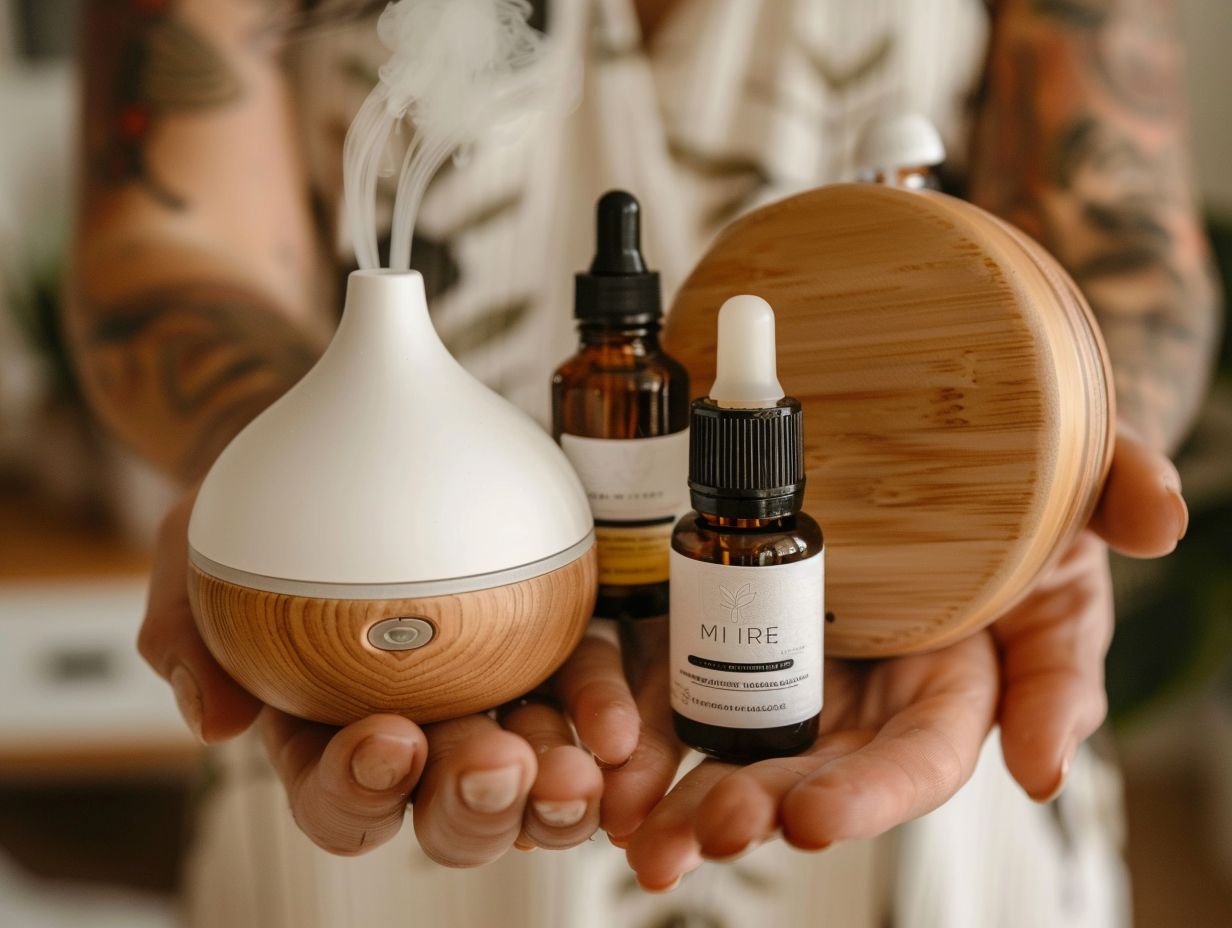
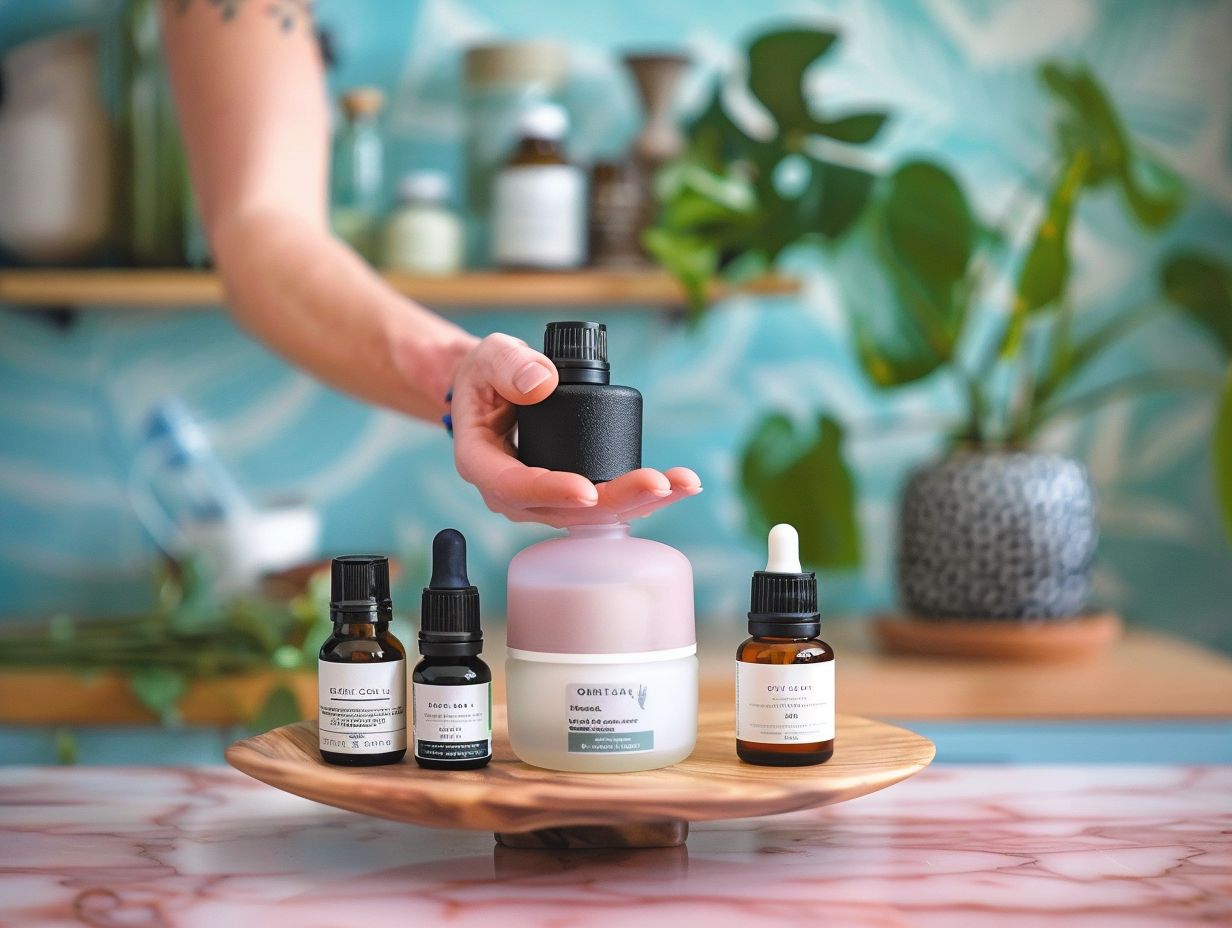

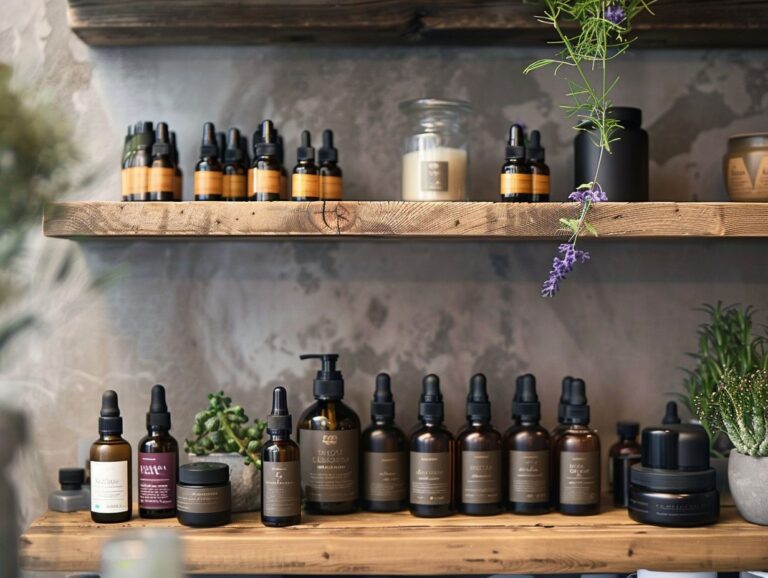
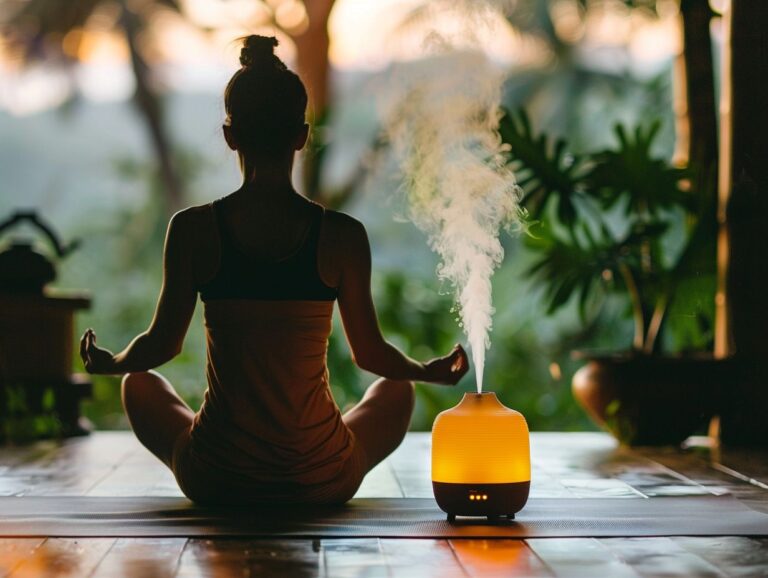
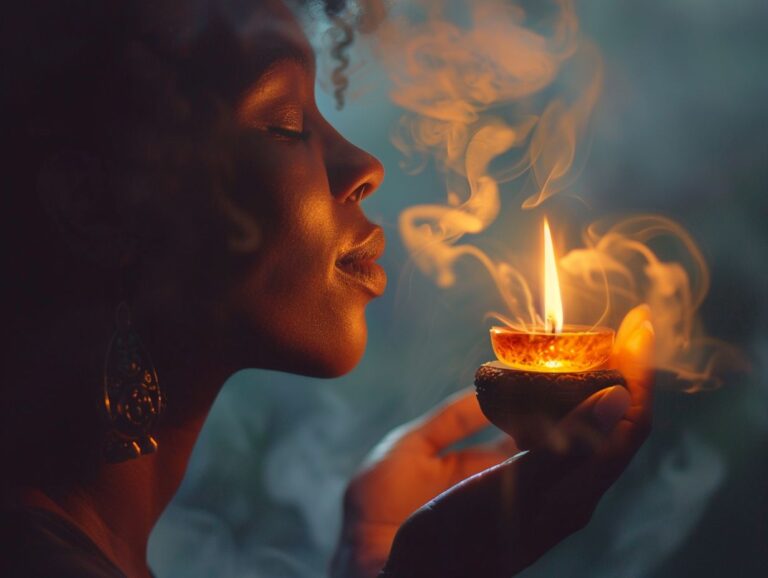
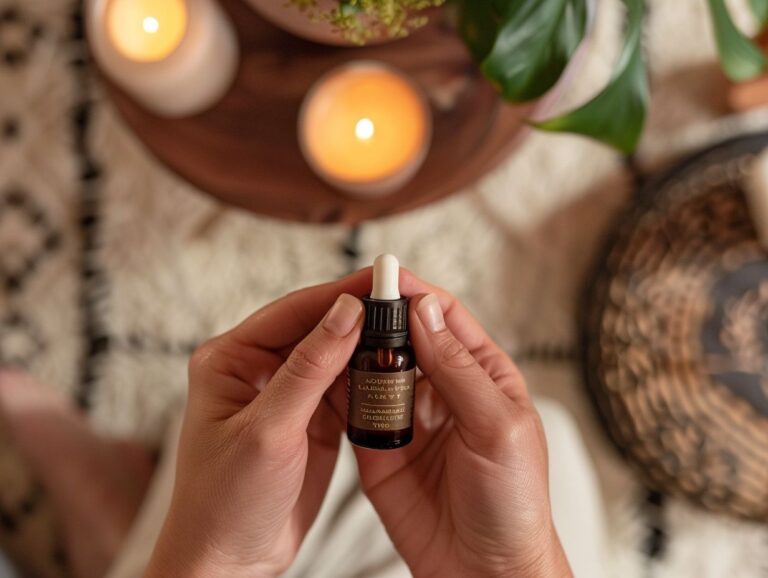
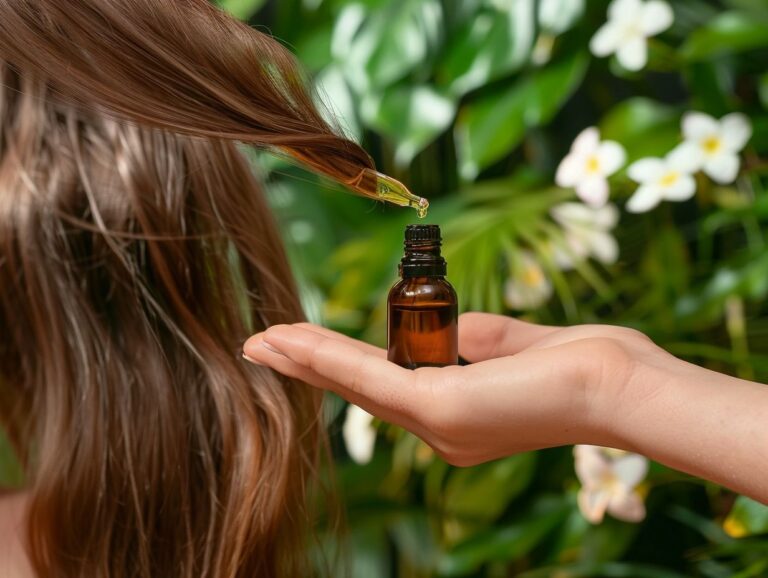
10 Comments